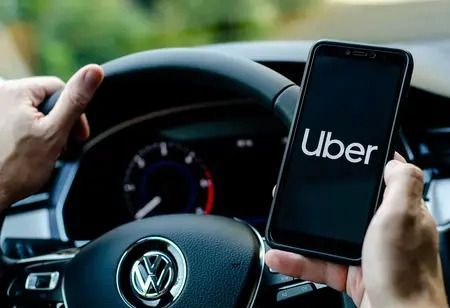
Uber Talks With Private Equity Firms, Banks for Robotaxi Operations


Uber is negotiating with private equity firms and banks for financing to develop its robotaxi operations, CEO Dara Khosrowshahi stated, as the ride-hailing leader plans a widespread launch of the emerging and heavily examined technology.
The firm has been providing robotaxis from Waymo, owned by Alphabet, on its ride-hailing application in Austin and Atlanta.
In July, it also secured a $300 million partnership that will enable it to deploy over 20,000 vehicles, produced by electric-vehicle company Lucid and equipped with self-driving technology from Nuro, over a span of six years.
Early this week, Khosrowshahi presented the partnerships as elements of a broader strategy that includes three robotaxi busines models: compensating partners who possess these vehicles at a set price, distributing revenue with fleet operators, and owning vehicles while permitting software licensing for autonomous driving technology.
Also Read: Aiming for the Moon with Chandrayaan - 3: A Crucial Step for India’s Future Moon Missions
"We are in discussions with private equity firms, and we have spoken to banks." After we establish the revenue model and determine the daily income these cars can produce, there will be abundant financing available. The chief executive officer states.
Experts have indicated that widespread rollout of robotaxis might reduce Uber's dependence on drivers, thus lowering operating expenses and enhancing profitability.
In spite of intense regulatory scrutiny and questions regarding broader acceptance, numerous firms like Tesla and US market leader Waymo have been hurrying to launch robotaxis, a sector Elon Musk claims could be valued in the trillions.
Also Read: How Green the Future of Metal & Mining Industry in India Can Get?
Waymo operates in five US cities, including San Francisco, whereas Tesla initiated a robotaxi service in Austin in June and began ride-hailing services in the Bay Area last month.
Uber unveiled a $20 billion stock buyback program this week. This comes after an early 2024 $7 billion buyback authorization.
The ongoing success of Uber One, the company's paid membership program that costs $9.99 a month, is largely responsible for this optimism in the business. In June, membership reached over 36 million users, a 60 percent year-over-year increase.
These clients make three times as much money as single-service users and make up over one-third of all reservations.
Uber started a week-long promotional campaign in May with cheap rides, food delivery, and grocery services in an effort to increase adoption even more. In a single week, the campaign brought in half a million new Uber One subscribers.